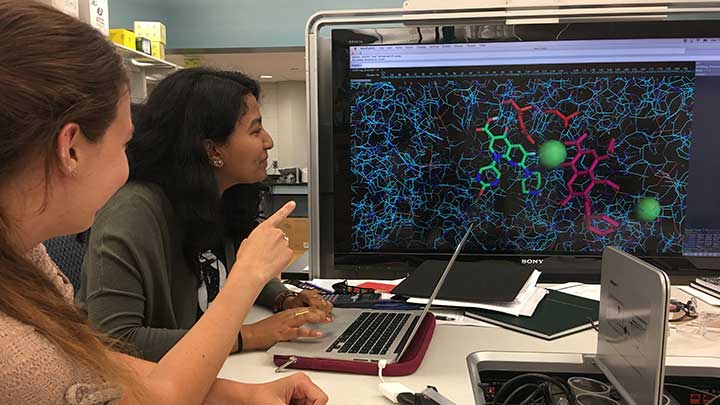
Find out more about ways you can participate in this research as a student.
There are more Americans who live with a rare disease than ALL of those who have been diagnosed with HIV, heart disease, or stroke. Find out more about research happening at Calvin University and in the state of Michigan.
Research facts
- 95% of rare disease do not have an FDA approved treatment or therapy.
- Rare diseases with FDA approved treatments still have high costs and variability, limiting their accessibility.
- Approximately 50% of the people affected by rare diseases are children, and 30% of those children will not live to see their 5th birthday.
- Rare diseases also offer an opportunity to better understand how our bodies function, which better enables us to understand and combat diseases that are designated as common diseases, including cardiovascular disease (56,888,289 deaths in 2008), infectious and parasitic diseases (8,721,166 deaths in 2008), diabetes (1,255,585 deaths in 2008), and Alzheimer’s and other dementias (539,948 deaths in 2008).1
Rare disease research at Calvin
At Calvin, our research focuses on rare diseases that cause mitochondrial dysfunction. By studying mitochondrial rare diseases, we hope to advance understanding of particular rare diseases as well as increase our understanding of mitochondrial function and its role in common diseases. Our goal is to develop model systems and assays that will allow us to differentiate the effects of various mutations so that we can understand and predict the severity of novel mutations. Read more about our current projects..
Rare disease research updates
We recognize that it can be challenging to keep track of what is known about your rare disease. You have enough to do managing your medical care or that of a family member or loved one. Visit our research update page to see summaries of current literature related to select rare diseases. Read more about our current summaries..
1 National Organization for Rare Disorders Fact Sheet, NORD, 2016
“I think we are called to be stewards of all God’s creation, so looking beyond more common diseases helps us as a Christian community reach out to those who are often overlooked. Even more importantly, we know that every human life has value. Thus, we cannot deem one life or cause more valuable than another. We should work equally as hard to empower those with rare disease as we do those with common diseases.”Kali | Student Researcher






